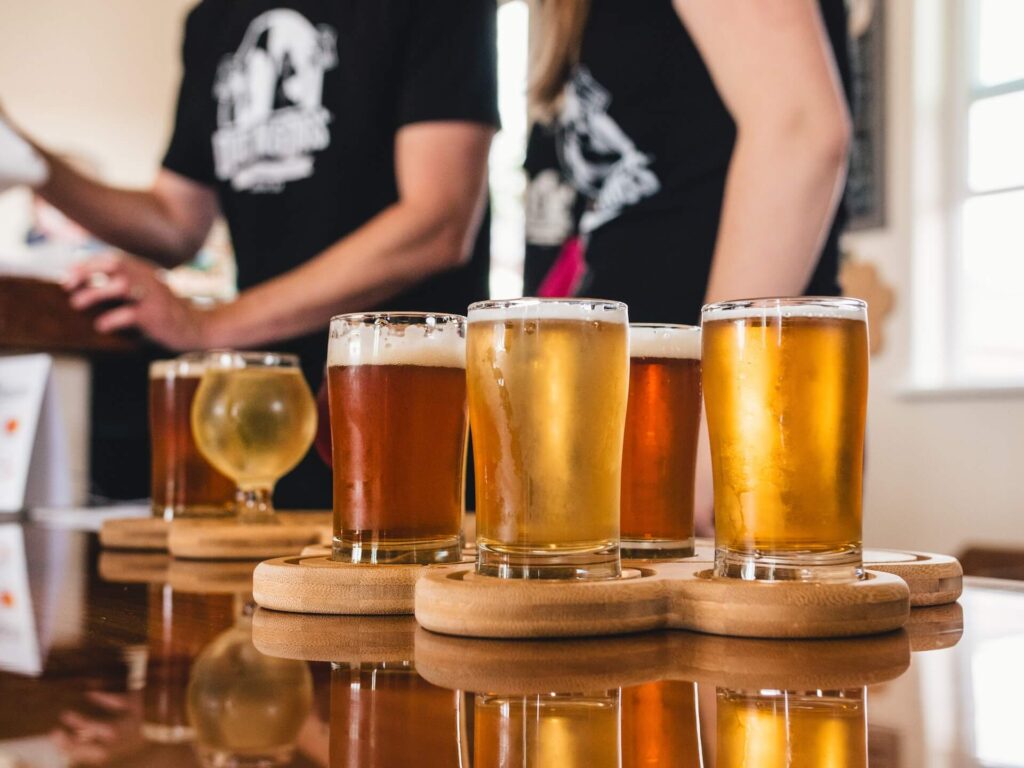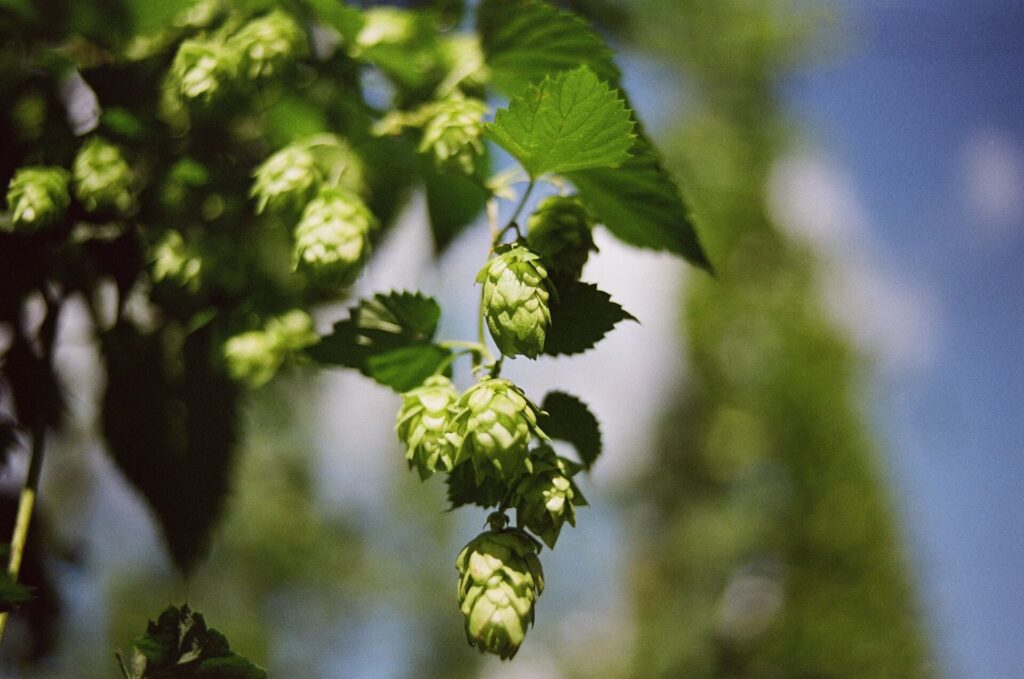
Ever wondered how beer is made? This drink, rumoured to have appeared around the same time as the beginnings of agriculture, has more or less always been created using the same methods. While our equipment and modern technologies have evolved, the process is thousands of years old!
In the following article, we’ll break down every step of the beer brewing process. So next time you gather around a refreshing pint or bottle with friends or family, you’ll have some interesting facts to share! Without further ado, let’s dive in.
Before the Brewery Process
Malting
The very first step of the beer brewing process is to germinate a chosen grain. This phase is carried out outside the brewery, by a malting plant, and the brewers make the grain selections. The most popular grains for this process are barley, wheat, oats and rye.
First, the grain will be soaked in order to awaken the dormant grain. This is also called steeping. Once the grains have been soaked, the next step is sprouting or germination. Once sprouted, the grain is then dried or roasted, which will largely determine the grain’s colour and taste.
Malting is often forgotten when explaining the beer-making process, but it’s essential to the final product. Having great-tasting grain is a game-changer!
During the Brewery Process
With City Brew Tours, we bring you to the most exclusive breweries in Montreal. You’ll hear about different brewery processes and ingredients, and taste beers made using different grains. By the end of the tour, you’ll be a beer brewer expert!
1. Milling: Where the beer brewing process begins
The very first step consists of compressing malt kernels as much as possible to break down and expose the sugars found in the wort. This step is crucial in beer-making and can be done dry or wet.
2. Mashing
In this step, the grains will be transferred to a mash tun. A mash tun is essentially an insulated compartment where the grains are mixed and heated with hot water to prepare for fermentation. This process allows enzymes to break down the starches from the grain and convert them to sugar.
The mashing process can take up to two hours. The temperature during this process varies and may be gradually increased over time. These choices will be determined by the brewer’s vision and unique skills.
Some brewers prefer beers with significant amounts of foam. Did you know that the mashing temperature played a role in this? Higher temperatures activate different natural enzymes and release different proteins and fermentable sugars.
Learn different brewer’s techniques during our City Brew Tours. You’ll get the chance to meet highly specialized brewers, who all approach the art of beer-making in various ways. What’s the difference in taste between a beer mashed at very low temperatures and a beer with extremely high mashing temperatures? Join our tours to find out!
3. Lautering
In this step, the mash is separated from the residual grain. To ensure a successful lautering, three steps must be carefully performed: mashout, recirculation and sparging.
Simply explained, these steps stop enzymatic reactions to maintain a certain level of fermentable sugar, remove the wort and filter out loose grains. During the sparging process, brewers will rinse the spent grain with cold water as much as possible to retain sugars. Many brewers use the spent grain to feed animals or to bake foods, such as bread!
4. Boiling
Thought the process was over? Not yet! The next step entails boiling the liquid with heated water to ensure sterilization and removal of unwanted bacteria. The boiling process further prevents enzymatic activity.
This process can take anywhere from one to two hours. During this process, a lot of the flavours will emerge. With City Brew Tours, you can ask brewers about their unique boiling process during a Montreal brewery tour.
5. Hopping

This step is closely related to boiling. During the boiling phase, certain hops are added by the brewer to the mix to add aroma – flavor – and bitterness. The time at which they are added also greatly impacts the final taste. Once this step is completed, a heat exchanger is often used to reduce the wort’s temperature and prepare the wort for fermentation.
6. Fermentation
In this well-known step of the beer brewing process, the wort (or infusion) is transferred to another container. Once the wort is transferred, yeast is then added to the mix! In this stage, we will thus see the conversion of sugars to alcohol and carbon dioxide.
The type of yeast used and temperature will determine if the wort will become an ale or a lager. In this process, brewers must closely monitor the brew’s temperature.
Once the primary fermentation process is completed, the beer will usually be stored in cold storage for a few weeks or perhaps stored in barrels to obtain a specific taste. Some brewers will perform a secondary fermentation. These final touches largely depend on the style of beer being made and the personal preferences of the brewer.
What Are The Final Steps of the Beer Brewing Process?
The final steps of the beer manufacturing process involve bottling the liquid either with natural carbon or by adding Co2. This allows the finished beer to remain fresh and preserve its flavours and aromas.
When all these brewing processes are completed, the beer can finally be enjoyed. With City Brew Tours, you can taste freshly brewed beer with your friends or family during our private brewery tours in Montreal.
Explore The Beer Brewing Process With City Brew Tours
Our Montreal City Brew Tour brings you to the city’s hidden gems. We’ve included local breweries with different brewing practices to ensure your taste buds get great variety. Discover the history of beer and learn the differences between an independent micro-brewery process and large-scale regional breweries.
As you can imagine, the brewing process greatly differs depending on the scale of beer which needs to be produced! Join City Brew Tour’s exclusive experience today!
